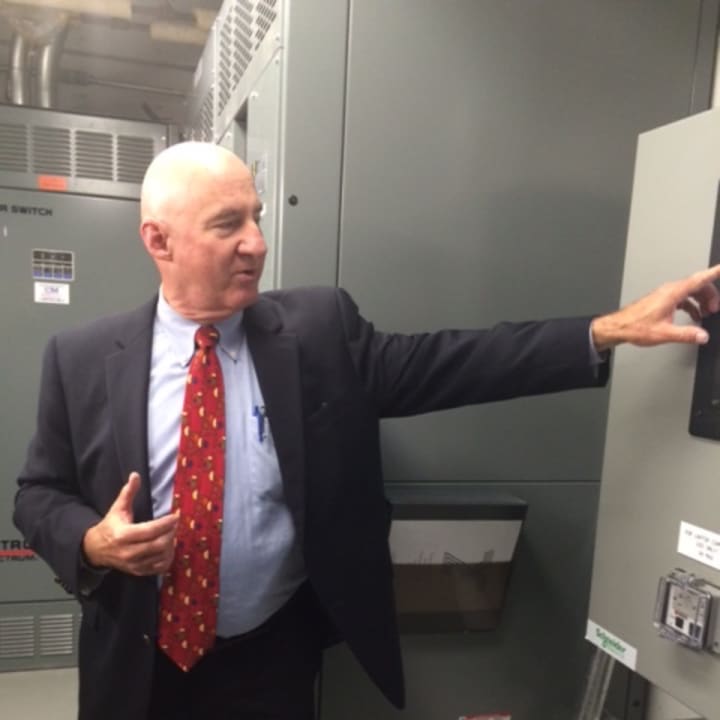Funded by a $1.2 million state grant from the state Department of Energy and Environmental Protection, the new system is the first of its kind for a Connecticut municipality.
First Selectman Michael Tetreau said creating the microgrid was a high priority in the wake of Superstorm Sandy, which left parts of the town cut off from emergency help and without power.
“What we have to be prepared for is what’s bigger, faster and stronger,” he told a gathering of state and local officials at a Wednesday press conference. “This is how we’re working together. This is setting the stage and I’m thrilled Fairfield is a leader in this.”
Katie Dykes, DEEP’s deputy commissioner, said climate change is the driver behind the state’s three-year-old initiative to fund and support similar microgrids at both public and private entities. Wesleyan University was the first to receive funding for its project.
“We are living the reality of climate change’s impact on our infrastructure,” she said, calling on others to continue “reducing and adapting.”
Connecticut was the first state to institute a microgrid program in 2012. It has already awarded $23.1 million for such projects, and Dykes announced the state will request proposals for another $30 million beginning next week.
Dykes encouraged Fairfield officials to reach out to other towns and cities with advice on the challenges associated with such an intricate endeavor.
Fairfield partnered with Schneider Electric to complete its microgrid, which will also power Operation Hope shelter and the nearby cell phone tower during emergencies. Five phone companies rely on the tower.
State Rep. Brenda Kupchik, a member of the state Energy and Technology Committee, said she was proud Fairfield is on the vanguard in energy and emergency preparedness.
“We need our police and our fire to be able to take care of the people and when you have no power, that’s a problem,” she said.
Click here to follow Daily Voice Fairfield and receive free news updates.




